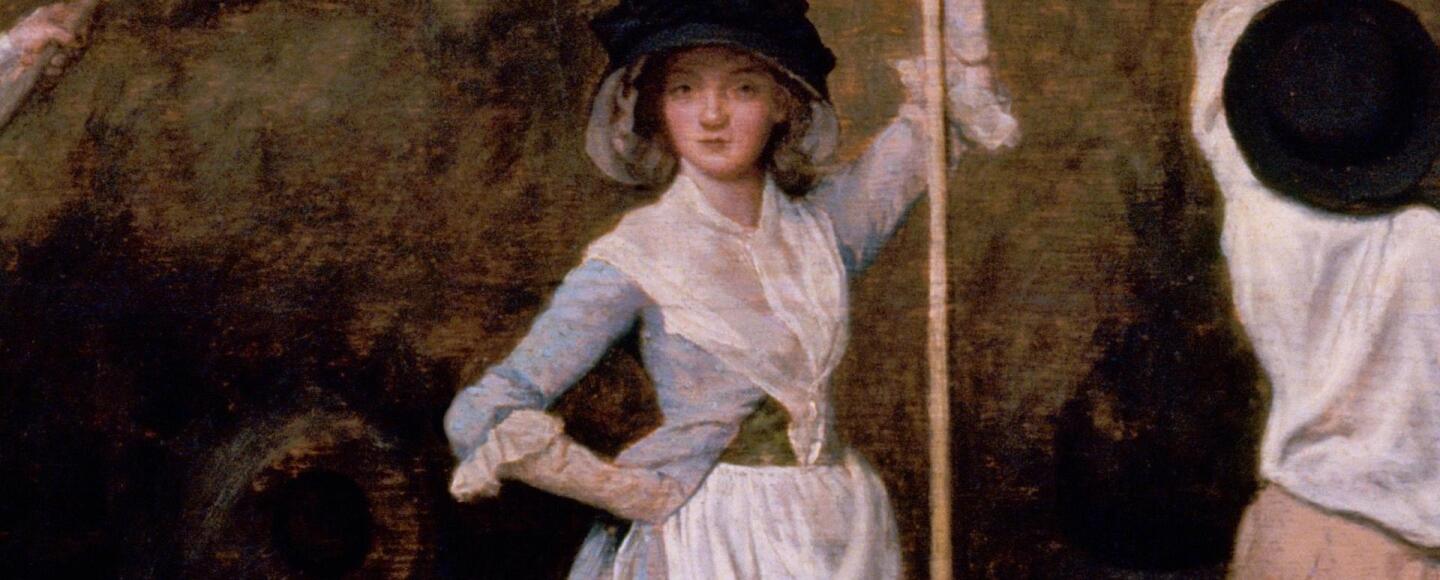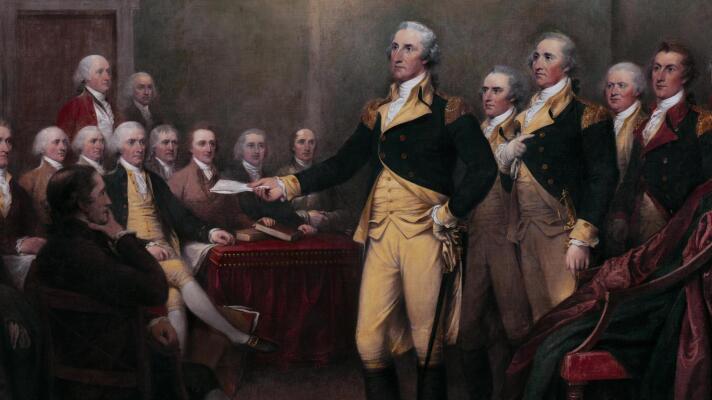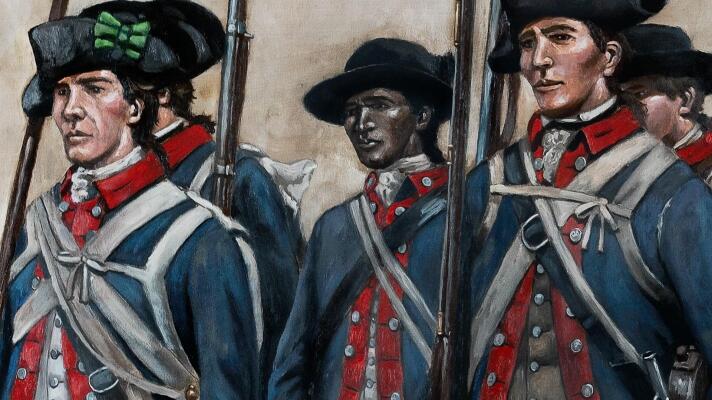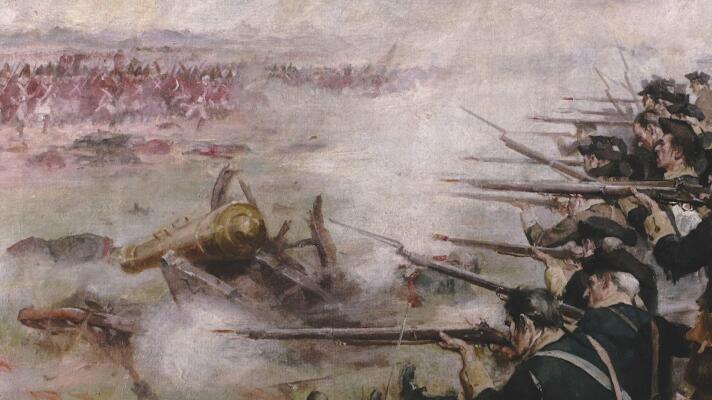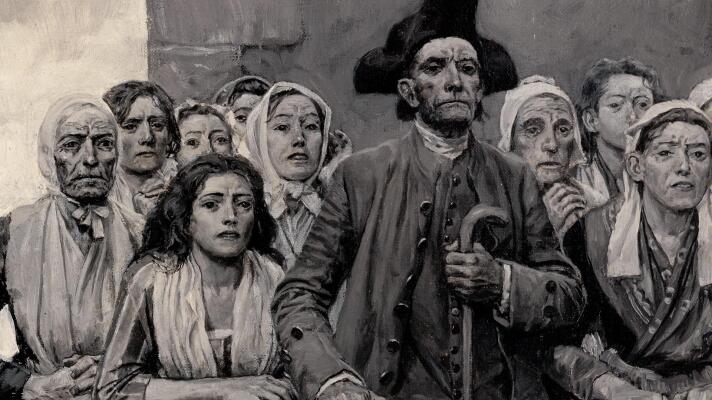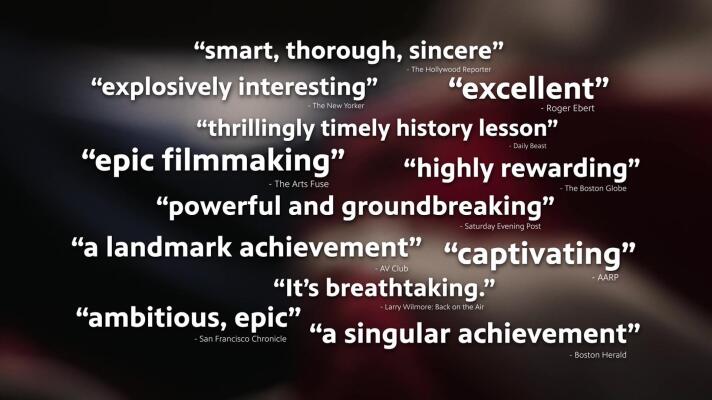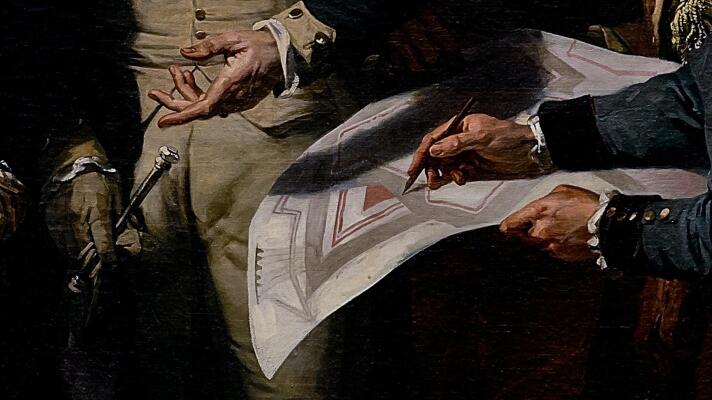Latest Episodes
Victory at Yorktown secures independence. Americans aspire for a more perfect union.
Episode:
S1
E6
|
2:10:41
The war drags on and moves to new theaters: at sea, in Indian Country, and in the South.
Episode:
S1
E5
|
1:53:53
Philadelphia falls, but the American victory at Saratoga allows France to enter the war.
Episode:
S1
E4
|
1:55:38
Washington abandons New York City and flees across New Jersey, before attacking Trenton.
Episode:
S1
E3
|
1:54:35
Washington takes command of the Continental Army. Congress declares American independence.
Episode:
S1
E2
|
2:04:18
Political protest escalates into violence. War gives thirteen colonies a common cause.
Episode:
S1
E1
|
1:56:09
Extras
"Explosively Interesting" - critics agree The American Revolution must-watch TV.
Preview:
0:30
THE AMERICAN REVOLUTION, a new six-part, 12-hour documentary from Ken Burns.
Preview:
2:20
John Adams, read by Paul Giamatti. The American Revolution premieres November 16.
Preview:
0:30
Historian Stephen Conway. The American Revolution premieres November 16.
Preview:
0:30
Historian Jane Kamensky. The American Revolution premieres November 16.
Preview:
0:30
Historian Stacey Schiff. The American Revolution premieres November 16.
Preview:
0:30
Historian Annette Gordon-Reed. The American Revolution premieres November 16.
Preview:
0:20
The American Revolution has spilled into a global war, but the United States hangs on by a thread.
Clip:
S1
E5
|
5:56
The Continental Army threatens to unravel while suffering harsh winter conditions at Valley Forge.
Clip:
S1
E5
|
4:26
Outnumbered and surrounded, General Charles Cornwallis surrenders, ending the American Revolution.
Clip:
S1
E6
|
10:44

WQLN PBS Passport is a member benefit that provides you with extended access to an on-demand library of quality public television programming!


